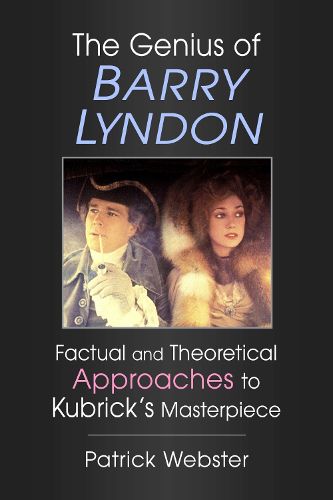Readings Newsletter
Become a Readings Member to make your shopping experience even easier.
Sign in or sign up for free!
You’re not far away from qualifying for FREE standard shipping within Australia
You’ve qualified for FREE standard shipping within Australia
The cart is loading…






This title is printed to order. This book may have been self-published. If so, we cannot guarantee the quality of the content. In the main most books will have gone through the editing process however some may not. We therefore suggest that you be aware of this before ordering this book. If in doubt check either the author or publisher’s details as we are unable to accept any returns unless they are faulty. Please contact us if you have any questions.
One of the most visually compelling films ever made, Barry Lyndon can--and should, argues the author--be seen as Stanley Kubrick's masterpiece. This comprehensive analysis examines such topics as the unique way in which Kubrick photographed the film, Kubrick's subtle understanding of cinematic storytelling, the deliberate upturning of generic expectation, and the eclectic use of music. It also provides a more rigorous reading of the film from a diverse range of theoretical approaches: structuralist, feminist, psychoanalytical, Marxist and postcolonial readings.
$9.00 standard shipping within Australia
FREE standard shipping within Australia for orders over $100.00
Express & International shipping calculated at checkout
This title is printed to order. This book may have been self-published. If so, we cannot guarantee the quality of the content. In the main most books will have gone through the editing process however some may not. We therefore suggest that you be aware of this before ordering this book. If in doubt check either the author or publisher’s details as we are unable to accept any returns unless they are faulty. Please contact us if you have any questions.
One of the most visually compelling films ever made, Barry Lyndon can--and should, argues the author--be seen as Stanley Kubrick's masterpiece. This comprehensive analysis examines such topics as the unique way in which Kubrick photographed the film, Kubrick's subtle understanding of cinematic storytelling, the deliberate upturning of generic expectation, and the eclectic use of music. It also provides a more rigorous reading of the film from a diverse range of theoretical approaches: structuralist, feminist, psychoanalytical, Marxist and postcolonial readings.